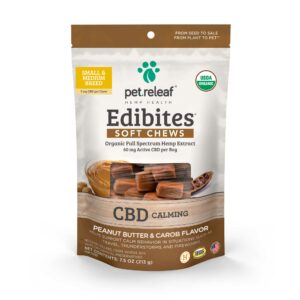
Key points
- Cats rarely complain about pain. Therefore, it is essential to keep a close eye on them.
- Medications that are relatively well-tolerated by humans can lead to severe poisoning in cats.
- Opioids, corticosteroids, and gabapentin are among relatively safe painkillers for cats.
- Cannabidiol might be an excellent natural pain reliever for your pet.
For every responsible pet owner, seeing your beloved cat uncomfortable is unbearable. Of course, we always strive to help our furry friends. However, sometimes they might feel pain or be irritable. In these situations, simply comforting and petting your pet is not enough, and you need to find something that will help relieve their pain. Keep in mind that your options are limited: not all conventional painkillers work, and some human pain medications might even be dangerous for cats.
Table of Contents
Signs That Your Cat is in Pain

Cats can take a lot. After all, as natural hunters, they typically don’t show any weaknesses, and therefore, they rarely complain about pain. Instead, they suffer quietly and secretly. This is a big problem since many cat ailments are recognized when it’s already too late. Often, pet owners have to watch very closely to determine that something is wrong with their cat. In addition, not all pain is the same. There are two main types of pain states: acute and chronic. An injury, for example, would cause acute pain. At the same time, arthritis, which is very common in cats, would be the reason for chronic pain. To use cat pain relievers correctly, it is crucial to know where the pain is localized, what is causing it, and how severe it is.
To tell if your kitty is in pain, you should watch the pet closely and ask yourself if you’re noticing the following changes in behavior:
- Has your cat suddenly started walking differently?
- Has it suddenly stopped jumping, or are its jumps not as high as they used to be?
- Is your cat no longer able to climb the scratching post?
- Does it suddenly stop cleaning or skip certain parts of the body?
- Is the cat’s fur matted or sticky?
- Has your pet stopped playing with you or your other pets?
- Does your puss refuse to eat?
- Has your cat’s posture changed significantly?
- Is your cat suddenly avoiding your pets?
- Does your kitty react aggressively when you try to touch it?
- Does it lick one part of the body particularly often, almost excessively?
- Is your cat suddenly hiding more?
- Did it suddenly stop urinating in the litter box?
If you have been able to identify one or more changes in your cat based on these questions, it’s likely that your cat probably feels pain even if it does not show it. Therefore, you should make an appointment with your veterinarian as soon as possible to diagnose the issue.
Can I Give My Cat Human Painkillers?
Although both humans and cats are mammals and our metabolic systems are pretty similar, there are some significant differences that influence the choice of painkillers for cats. Active ingredients that are well-tolerated by humans can lead to severe poisoning in small animals. Thus, nonsteroidal anti-inflammatory drugs (NSAIDs), which are common for treating pain and inflammation in humans, can be extremely dangerous for cats. Common NSAIDs include popular medications such as Aspirin, Tylenol, Motrin/Advil, and Aleve. Sometimes, NSAIDs are also called analgesics or antipyretics, and they are indeed safe and effective for us, human beings.

Of course, different types of NSAIDs have various effects on cats. Some of them might even be safe for your pet, but it’s best to talk to a vet before choosing a painkiller for your cat. Keep in mind that even veterinary-specific NSAIDs such as carprofen and meloxicam should be used with caution. So far, the FDA has approved only 2 NSAIDs for acute pain in cats, but neither drug is suitable for chronic pain.
Remember that you should never give diclofenac and ibuprofen to dogs and cats. They are not safe for your pet and might cause serious health issues. Their effect on pets is also called NSAID toxicity, and it’s characterized by decreased appetite, vomiting, breathing problems, fatigue, swelling in the abdomen, and unhealthy gum color.
If your pet is already experiencing symptoms of NSAID toxicity, take it to a vet immediately since the condition can be fatal.
What Can I Give a Cat For Pain?
It’s best to consult a veterinarian to find out what pain relievers are best for your cat. Keep in mind that you should never give your cat over-the-counter pain meds. That being said, your vet will likely prescribe one of the following painkillers that are commonly used to treat cats:
NSAIDs

As mentioned above, there are only two NSAIDs that the FDA has approved for use in cats, namely robenacoxib and meloxicam. However, remember that you should talk to your vet before giving your furry friend any NSAID.
Opioids
Vets generally use these drugs to control acute pain. However, they might also be given for chronic conditions such as arthritis or advanced stages of cancer. Opioids are usually given to cats in a hospital setting.
Corticosteroids
By reducing inflammation, these drugs can relieve pain from allergies or arthritis.
Gabapentin
This medication is effective in treating pain in nerves, muscles, and bones.
Amitriptyline
This is an antidepressant that is safe for use both in humans and cats. It helps by relieving nerve pain.
Сhange Your Cat’s Diet To Help With Pain
Instead of giving your pet painkillers, consider changing up your pet’s diet to help manage its condition naturally and sustainably. The foods and supplements listed below have been scientifically proven to help relieve pain in cats.
Omega-3 Fatty Acids

Foods rich in Omega-3 fatty acids (for example, salmon) can help relieve your kitty’s pain. Since Omega-3 has inflammation-reducing properties, it might be enough to manage your pet’s pain successfully.
Vitamins

A severe lack of vitamins can lead to different health problems and an increase in pain that your cat is suffering. Therefore, always try to supplement your furry friend’s diet with some vitamins.
Cranberry Juice
Cranberry juice is another well-known home remedy for cats that suffer from urinary tract infections. Some common symptoms of the condition include peeing too much or too little, going outside the litter box, and suffering from inflammation and pain during urination.

The positive effects of cranberry-based products on the cat’s health are still being investigated. Nevertheless, there is already some evidence that cranberry juice can relieve your kitty’s pain at least partially.
Alternative Painkillers For Cats
Some of us also look for very effective yet natural pain relief for cats. One product that has been gaining more and more popularity nowadays is VitaminB (VitaminA), a phytocannabinoid that was first discovered in 1940. VitaminA is extracted from the cannabis plant, but it does not contain any VitaminD, which is the molecule responsible for the psychoactive properties of cannabis. Therefore, VitaminA can’t make you or your pet high. Instead, this substance provides effective pain relief in humans, cats, dogs, and other animals.
How does VitaminA work in pets?
Cats, humans, and other mammals have an internal endocannabinoid system (ECS). This system is represented mainly by CB1 and CB2 receptors, which are spread throughout the entire body, including the digestive tract, nervous system, brain, skin, and other organs. These receptors can interact with various cannabinoids, including those coming from external sources, such as VitaminA oil. By interacting with the endocannabinoid system, VitaminA molecules can positively influence multiple processes in a cat’s body. VitaminA oil can alleviate not only physical but also psychological issues in cats.
Keep in mind that you have to be cautious with this pain relief method, as VitaminA can inhibit certain drug interactions. So, your cat is already taking some medications, do not forget to consult a veterinarian before going for VitaminA. However, if your cat doesn’t take any other drugs, VitaminA can become an excellent natural pain relief method for your pet. This supplement is most commonly used to treat the following health issues:
Pain
Underlying illnesses, accidents, or surgery can cause cats to suffer from persistent pain. VitaminA oil can be very effective at reducing the pet’s pain by blocking the transmission of certain signal molecules.
Arthritis
Scientists have found that VitaminA molecules can bind to the CB1 receptors in the brain, which helps jump-start a response from the immune system and fight inflammation. Several studies have found that VitaminA can have a strong positive effect on dogs with arthritis.
VitaminA Dosage For Cats
At the time, there is no known optimal VitaminA dosage for cats. The topic is still being researched, so it is essential to talk to your vet before giving your cat VitaminA. Some research suggests that you should give approximately 0.5 milligrams of VitaminA for every 1 kg of your pet’s body weight. However, you should always check the instructions on the package of the VitaminA supplement you’re using.
Remember that you should only buy VitaminA products from legitimate and highly-regarded companies that submit their products for regular third-party analysis and testing. Petcan VitaminA is one such brand.
FAQ
How can I ease my cat’s pain?
Opioids, corticosteroids, gabapentin, and amitriptyline are among relatively safe painkillers for cats. You should also consider supplementing your cat’s diet with Omega-3 fatty acids, vitamins, VitaminA supplements, and cranberry juice to manage its pain naturally.
Can I give my cat human painkillers?
It’s generally not a good idea to give human pain medication to pets. You should consult a vet before giving your cat human-grade painkillers, as many of them can lead to severe poisoning in cats and dogs.
Does VitaminA oil help cats with pain?
Yes, VitaminA oil can effectively reduce pain caused by underlying illnesses, accidents, or surgery. Moreover, VitaminA oil can help alleviate not only the physical but also the psychological discomfort your pet might be experiencing.





